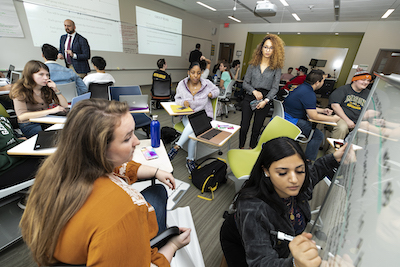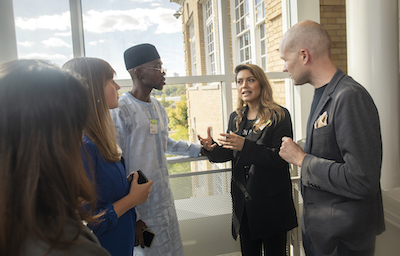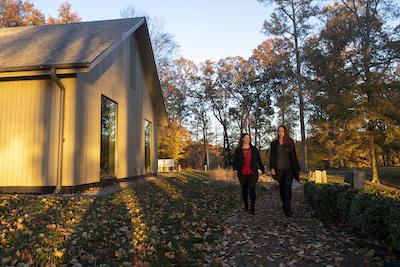George Mason University’s Jimmy and Rosalynn Carter School for Peace and Conflict Resolution is ranked No. 1 nationally among public institutions for its overall performance, and No. 1 among all institutions for its online offerings, according to a new report by Authority.org.

The website’s methodology can be found here.
“This recognition is really important to us,” Carter School Dean Alpaslan Özerdem said. “Having this recognition by a third party and based on the merits, it gives me the confidence that the quality of education we provide our students, in person and online, is significant.”
“And with COVID, we learned to offer the full MS degree program in the online format, sharing the unique program that has developed over 40 years with people near and far,” said Susan Allen, the Carter School’s director of graduate programs.
For Özerdem, the Carter School’s uniqueness begins with its status as a standalone college within Mason. An important distinction, he said, because it showcases the significance the university places on the subject matter.
That subject matter is explored with a dynamic combination of academic pursuits and experiential learning in the form of centers and Peace Labs.
At the centers, students study all aspects of conflict analysis and resolution and put them into practice in the field. The Peace Labs develop and test tools and processes to assist governments, educational institutions, peacebuilding organizations, and communities to assess the root causes of conflict, preventing violence, and creating a more inclusive and just society.

“When it comes to what our professors teach us, it goes beyond right and wrong, or good and bad,” said Simi Kumar, a conflict analysis and resolution major who expects to graduate in 2025. “They take an approach that encompasses other lenses, other perspectives. We’re taught to seek those out and effectively utilize them, which is what I love most about our academic environment.”
Added Özerdem: “We encourage students to be part of these activities and research, so, as part of learning, they have the opportunity to engage with real-world challenges.”
A prime example is the Carter School’s recently announced agreement with the U.S. State Department’s Bureau of Conflict and Stabilization Operations. With a select number of other universities, the Carter School will be a partner in the State Department’s Academic Center of Conflict Anticipation and Prevention.
Developed under the supervision of Özerdem, Allen, and Professor Karina Korostelina, the partnership will allow Carter School students to contribute to international peacebuilding with actionable research.

The Carter School helped facilitate the signing of a historic peace accord in the Democratic Republic of Congo, using a community-centered approach the school developed in which local leaders led the negotiations. The school’s peacemaking skills and expertise nurtured the process rather than dominating it, giving the stakeholders a sense of ownership.
The school also is holding events on the Israel-Palestine conflict, including dialogue sessions, roundtable discussions, and workshops.
“With all the conflicts in different parts of the world, we need more and more peacemakers and peacebuilders,” Özerdem said. “We need people who are able to respond to these challenges effectively.”
For Kumar, that means learning “cultivating the ability to engage with and comprehend people at the forefront, which is a foundational pursuit that establishes a great base for collaboration and understanding across diverse fields and situations. That’s just one of the facets that makes the Carter School special.”
Academically, the Carter School is expanding its footprint with minors in the Costello College of Business and the College of Education and Human Development. Another will be in the College of Engineering and Computing in the next academic year.
“The goal,” Özerdem said, “is that no matter what you study here at Mason, you should be able to gain conflict analysis and resolution skills. That way every graduate can say that in addition to their expertise they are also able to do conflict analysis and resolution. That is a huge added value.”
Related Stories
- April 12, 2024
- April 11, 2024
- April 3, 2024
- March 5, 2024
- February 13, 2024
